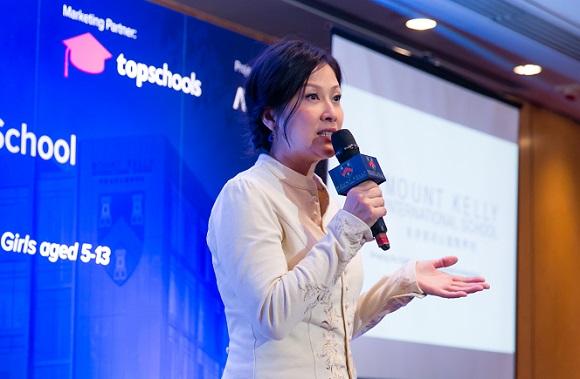【陳慧珊】有一種教育,叫學習做決定(1)評定精確的行動
2016-06-17

作決定,是一既有趣,又令人興奮的學習過程及經驗。然而,大多數人卻只着眼於所作的決定是否有成效 ,而非過程中學到的、將會學到的和有可能學到的東西。
或許我們可以走出固有框架,將焦點放於作決定時,背後所蘊含的教育意義 — 那個決定教曉了我們甚麼?當中所得到的經驗,怎樣幫助我們邁向更豐盛和快樂的人生路?作決定,其實亦是一種教育。
在任何作決定的過程中,最有效的策略是「評定精確的行動」。
我們還是嬰兒時,這種策略很簡單直接:當我們餓了,我們會哭。哭和笑這些生理反應就是「精確的行動」,是與生俱來的。
然後我們學習如何利用這些行動去生存:哭=奶瓶=下次感到肚餓時會「決定」再哭。
如果,作決定猶如一個自動的行為反應;如果,有神奇之手告訴我們應該怎樣做,這不是很好嗎?
某程度上,作決定會受外在環境影響。例如青少年在建立自我形象時,社會大眾認定的一套價值觀,會教曉他們甚麼應做甚麼不應做,這對他們的思想和行為都起決定性的作用。所以他們怎樣構建自己的價值觀、定立人生目標、發展獨立思想,或多或少都受到社會性規範。
如果我們的價值觀、偏好、目的和行為是建基於別人或群體所定下的準則,由別人去定義甚麼是好甚麼是壞 ,甚麼是對甚麼是錯,我們只需簡單跟從,是否很糟糕?這些所謂規條局限了我們的選擇,但也令決定的過程變得簡易輕鬆。
然而,我們是否應盡自己的最大能力嘗試自己作主,還是直接跟從大眾的旨意?
青少年最渴望的是擁有自決權。但對我們這些成年人而言,作決定時的考量相對複雜得多,因為我們為的不只是自己,還有為孩子為家庭,也為跟我們有牽連的社群。所以作決定前,亦要聆聽別人的想法和接受別人的意見。儘管我們面對很多限制和責任,但我們也能更忠於自己,因為我們懂得更多技能、方法和擁有更多經驗去拆解難題。
我們還可以利用我們的推理能力和直覺能力。
一個成熟的決定建基於理性思考,善用推理、反覆推敲,和留意有沒有其他選擇,深思熟慮後作出取捨。似乎很多心理學家都用理性來定義一個決定的「成功」,為甚麼必須是理性的呢?我們知道,理性並不能保證成功,不過,我們希望它可以增加我們成功的機會。
當然,在做決定時,不能單靠理性,直覺也是必須的。事實上,一個人性化的決定往往要理性和感性並存。
衡量一件事情時,投放的理性思考和感性因素的比例要視乎情況而定,不同時間不同事情,當陷於兩難,就要作出妥協、取捨,才能更有效解決問題,將損失減至最少,取得最大的成果,亦從中學習得最多。
因此,如果我們能夠把理性和感性智慧成為雙向的助力,那麼就算面對逆境也能化險為夷。
總括而言,在作出恰當決定的過程中,我們要順其自然,有時也要入世聽從別人的意見,同時好好利用自己的理性和情感智慧,作出妥協。
作者:陳慧珊
Decision Making is Educational
“DE-fining a pre-CISe act-ION point”
Decision making is both an intriguing learned process and an exciting learning process. However, most of us are inclined to focus more on the “success” of our decision making outcome, rather than on the lessons that we have learned, are about to learn, and those that are still to come.
Perhaps we could deviate from habitual thinking and the norm to focus more on the educational prospects of decision making? — to see the beauty of making decisions and decisions made as something that has the capacity to educate us, and of which the intuitive and practical knowledge gained could contribute to the quality of our lives…for a richer, happier life journey. Decision making could actually be educational.
In any decision making adventure, an effective strategy to use may be to “DE-fine a Pre-CISe ActION Point”.
As infants, this strategy was easy. Evolution did the work for us: when we’re hungry we cry. Our human biological responses such as crying and laughing, these precise action points, were defined for us from the very second of our existence by the mechanisms of evolution.
Then we learned to use the procedure to keep ourselves alive: Cry = bottle = next time I am hungry I will “decide” to cry again.
Wouldn’t it be nice if decision making were as automatic as a behavioral response? Wouldn’t it be nice if some miraculous force of nature could define a precise action point for us?
In a way, decision making according to ‘norms’ could be that “force”. Adolescents facing the developmental stage of identity formation are most prone to the “force” of ‘norms’; they tend to base their thought and action on what society considers “cool” or “normal”. As adolescents construct their value system, to figure out what their goals should be and strive to become independent thinkers and doers, defining precise action points may be influenced by “laws of norms”.
As for the rest of us, if our values, priorities, preferences, intentions, and behavior were based on the criteria of what other people and groups use to make decisions, on what others think is “awesome” or “uncool”, good or bad, right or wrong, would it be all that bad? At least, decision making would be bounded by a set of “laws” that we could simply follow — to help us limit our options, diminish the dauntingness of choosing, and shorten our decision making nightmare!
However, should we test our personal capacity to define our own precise action points in decision making according to what we can do, or make the easier choice to follow what the “laws of norms” say we should do?
Autonomy in making decisions is also what adolescents strive to achieve. Yet for adults, we make decisions not only for ourselves, but for our children and family, for groups, and for organizations. Invariably, rather than having sole autonomy in making choices, we need to incorporate the ideas and judgement of others, which adds to the complexity of the decision making equation. However, although we face more constraints and responsibilities, as adults we are also more in tune with who we are and what we want. Plus, we have more skills, strategies, and experiences to counteract complexity.
We can also rely on our human capacity for reasoning and intuition.
Making adult choices is based on rational decision making, which necessitates the use of reasoning, reflection, being consciously aware of alternatives, and deliberately selecting one choice over another.
But why does decision making have to be rational? It seems that many decision psychologists use rationality of a decision as a benchmark of “success”. Even so, we know that rationality does not guarantee success. However, we would like to hope that it may increase our chances of success.
Emotion also plays a vital role in decision making. The fact is, it would be humanly impossible to make an advantageous decision entirely based on reason; therefore, intuition is necessary.
It would be up to us, of course, to control our rational and emotional compass to work to our advantage. For example, experience tells us that at different points of the decision making process, it would be more effective to lean towards our logical reasoning than our intuition, and vice versa. Making compromises between the two at various times and at various contexts of the decision making dilemma could maximize efficiency, productivity, plus our learning.
As such, if we could direct our rational and emotional intelligence to work together as each other’s ally in the process of defining precise action points in making incremental and final choices, we may learn how our ultimate goal may have a fighting chance against uncertainty and bad luck.
To Define a Precise Action Point, if we:
Accept what the ‘laws of nature’ have evolved for us, decision making may be a natural selection.
Obey ‘the norm’, decision making may be inevitable.
Direct our rational and emotional intelligence, decision making may be a matter of making compromises.
Text by Flora Chan
